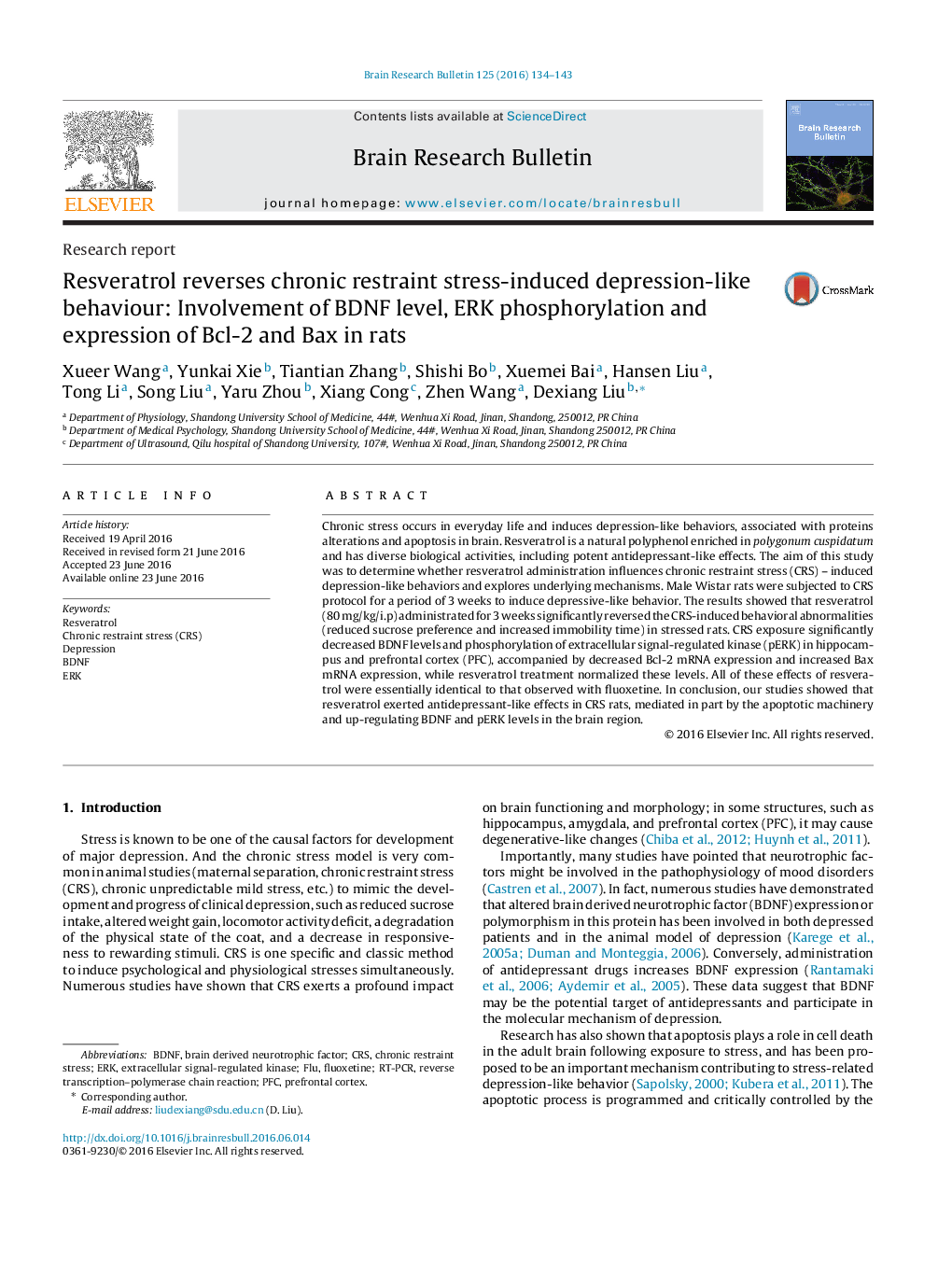| Article ID | Journal | Published Year | Pages | File Type |
|---|---|---|---|---|
| 6261531 | Brain Research Bulletin | 2016 | 10 Pages |
â¢Resveratrol reversed CRS-induced behavioral changes in rats.â¢Resveratrol increased BDNF and ERK in cerebral cortex and hippocampus.â¢Resveratrol normalized Bcl-2 mRNA and Bax mRNA expression in rat brain.
Chronic stress occurs in everyday life and induces depression-like behaviors, associated with proteins alterations and apoptosis in brain. Resveratrol is a natural polyphenol enriched in polygonum cuspidatum and has diverse biological activities, including potent antidepressant-like effects. The aim of this study was to determine whether resveratrol administration influences chronic restraint stress (CRS) - induced depression-like behaviors and explores underlying mechanisms. Male Wistar rats were subjected to CRS protocol for a period of 3 weeks to induce depressive-like behavior. The results showed that resveratrol (80Â mg/kg/i.p) administrated for 3 weeks significantly reversed the CRS-induced behavioral abnormalities (reduced sucrose preference and increased immobility time) in stressed rats. CRS exposure significantly decreased BDNF levels and phosphorylation of extracellular signal-regulated kinase (pERK) in hippocampus and prefrontal cortex (PFC), accompanied by decreased Bcl-2 mRNA expression and increased Bax mRNA expression, while resveratrol treatment normalized these levels. All of these effects of resveratrol were essentially identical to that observed with fluoxetine. In conclusion, our studies showed that resveratrol exerted antidepressant-like effects in CRS rats, mediated in part by the apoptotic machinery and up-regulating BDNF and pERK levels in the brain region.
